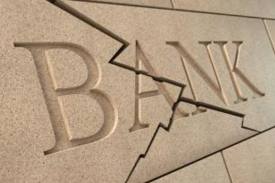So far this year, 143 banks have collapsed – that’s more than all of last year – and many experts expect that even more will go under. And while the average consumer isn’t expected to be adversely affected by a bank failure, many businesses could find themselves placed in so much turmoil that they may need to file bankruptcy.
Here’s what you need to know:
- When a bank fails, usually another bank is willing to come forward the take over ownership. However, that bank is not obligated to acquire the loans associated with the failed bank. This can leave many businesses’ credit access in limbo. And as any business knows, limited access to credit could spell liquidation in bankruptcy at worse or a Chapter 11 bankruptcy restructure if they are savvy.
- One of the immediate problems that some businesses may face after a bank failure is the lack of access to their revolving lines of credit. For businesses that rely on their revolving credit to pay for operating expenses, a prolonged lack of access could push them into bankruptcy.
- Businesses that currently rely on revolving lines of credit should come up with plans to survive if their access to the credit is cut off in the event of a bank failure or for some other reason. Just like with individual debtors, overreliance on credit can make a business vulnerable and lead to a bankruptcy filing even if that is not the desire of the company.
- If a business finds themselves in the vortex of a bank failure without access to their credit lines, they should immediately contact the bank who will be taking over the failed financial institution. Be prepared to prove your credit worthiness to the new bank owner because they are not required to take on the loans. Also be prepared to restructure you debts in bankruptcy if necessary to save your business from further harm if you find that you are unable to reopen necessary lines of credit.
